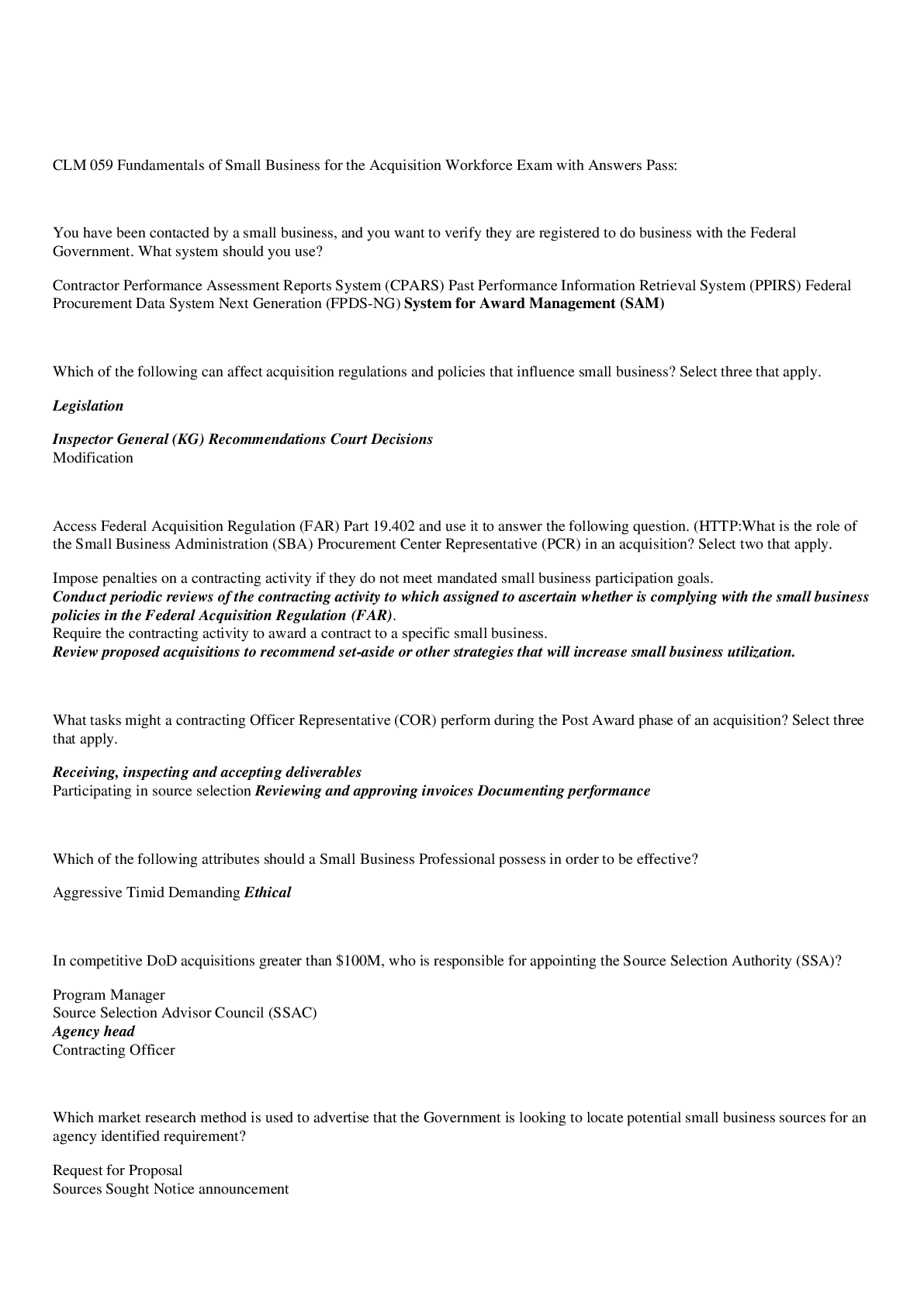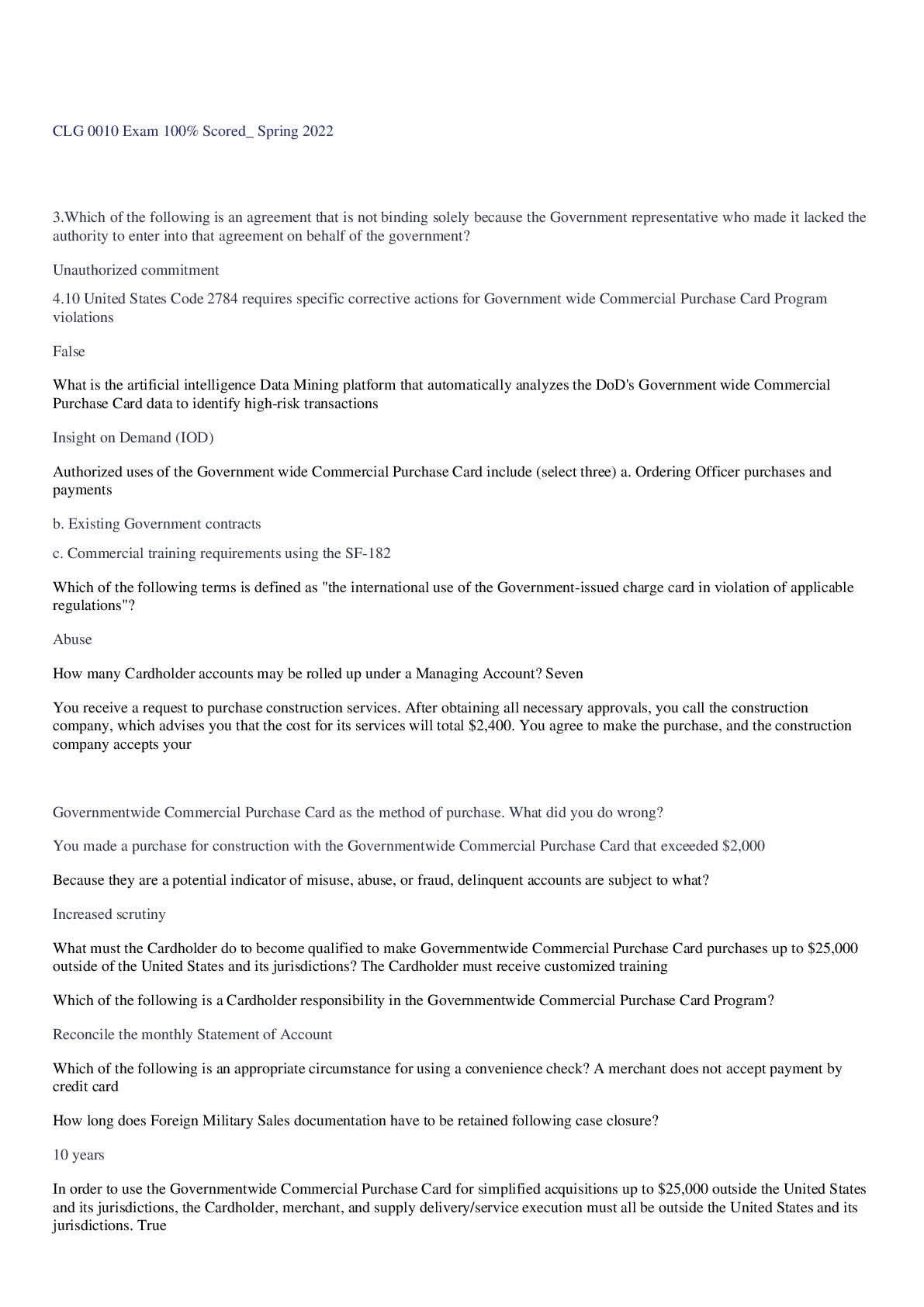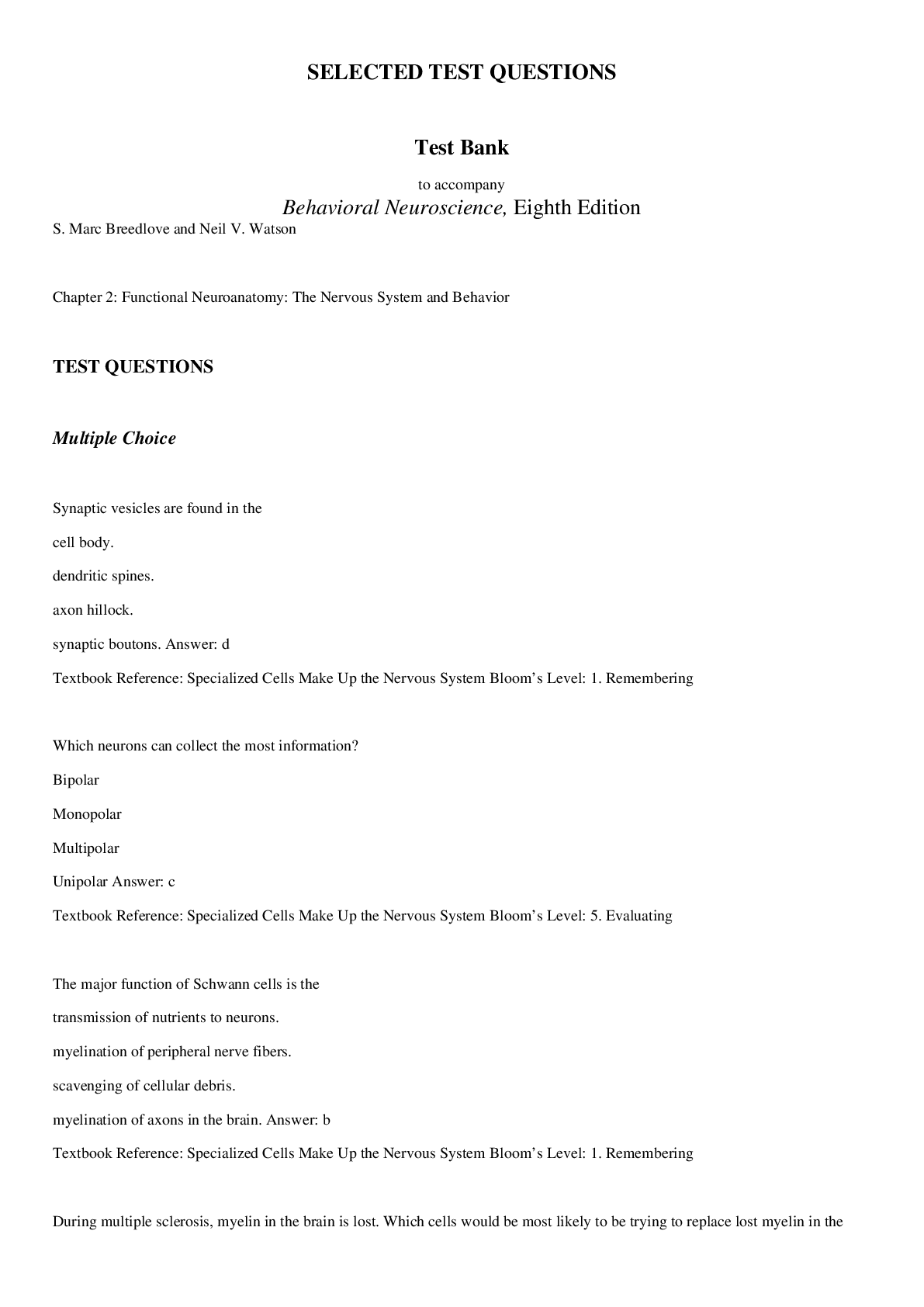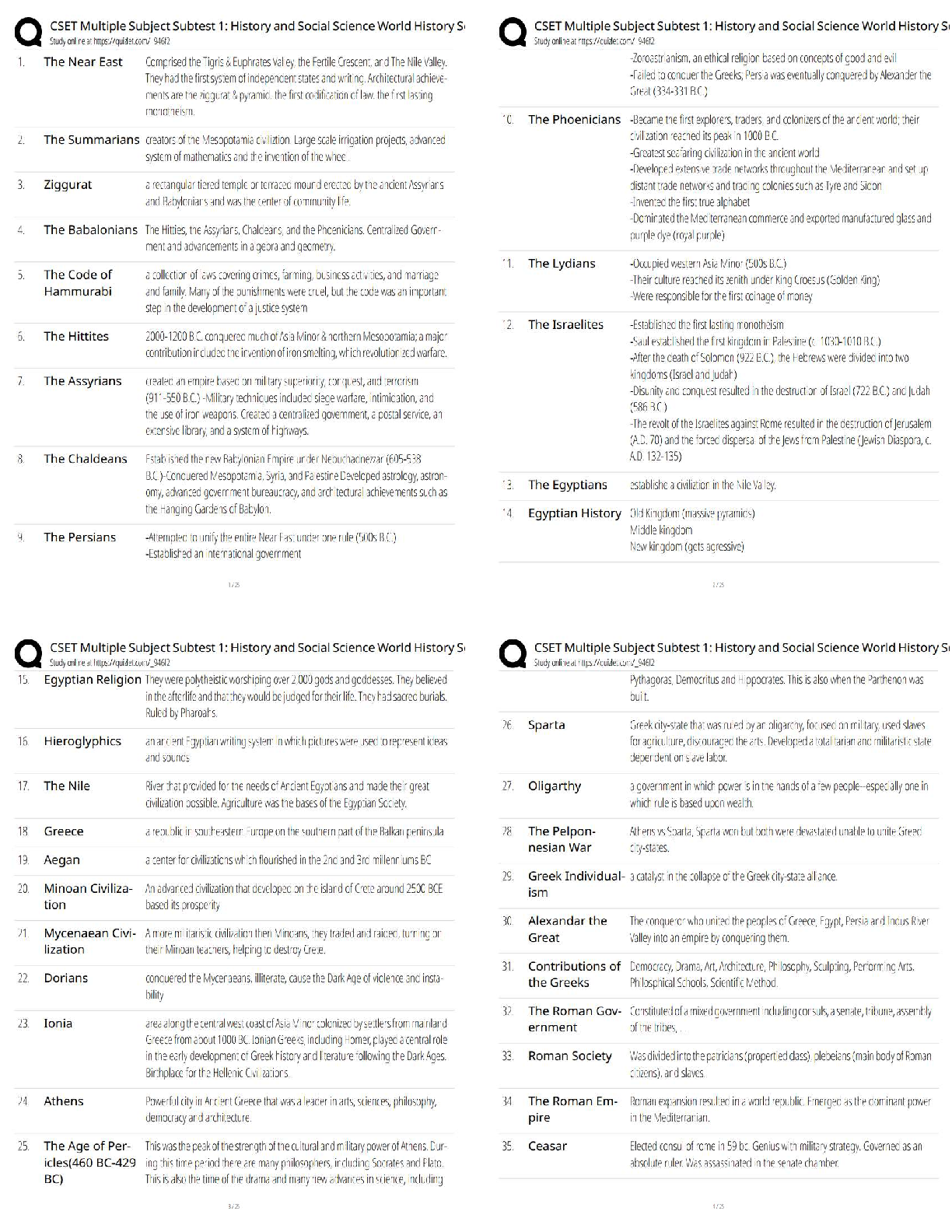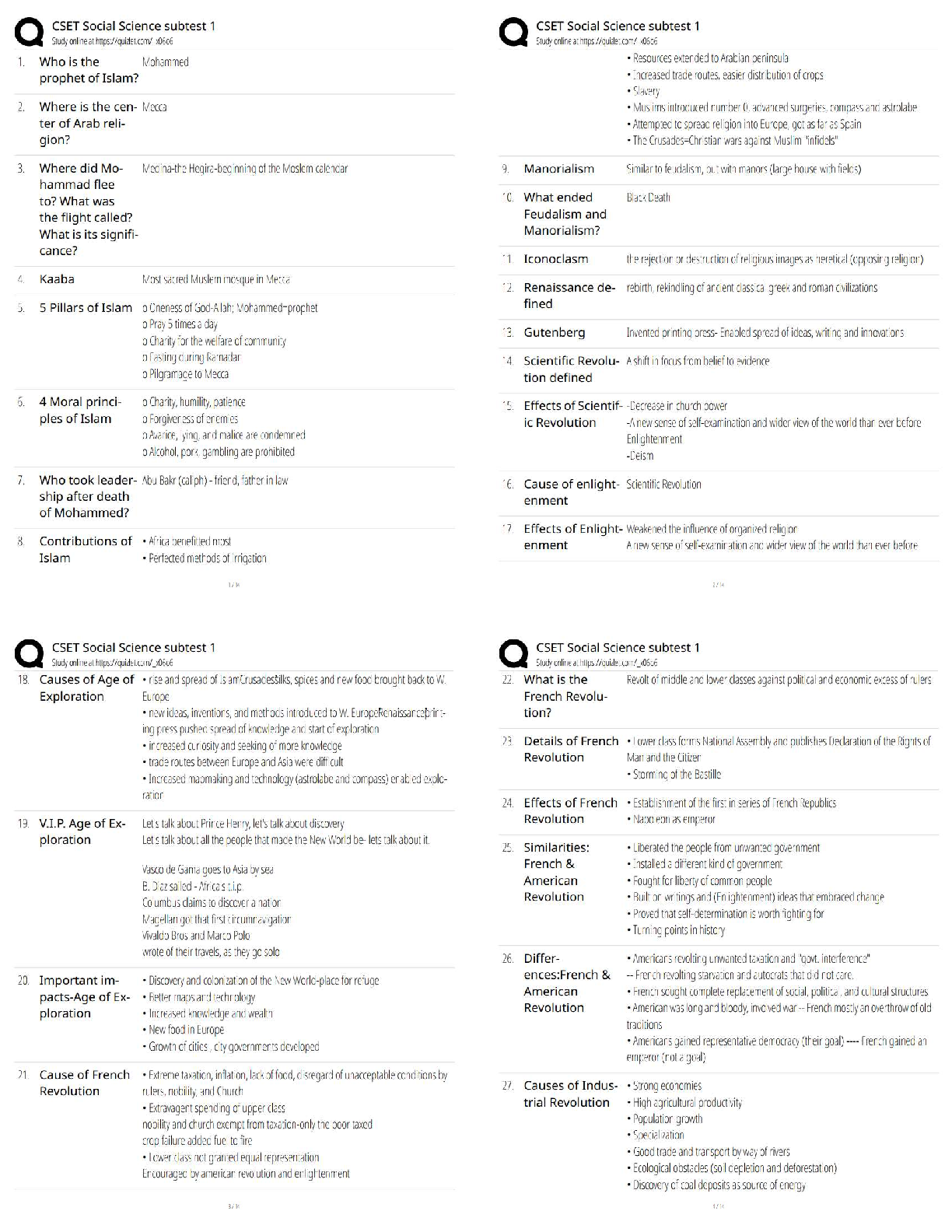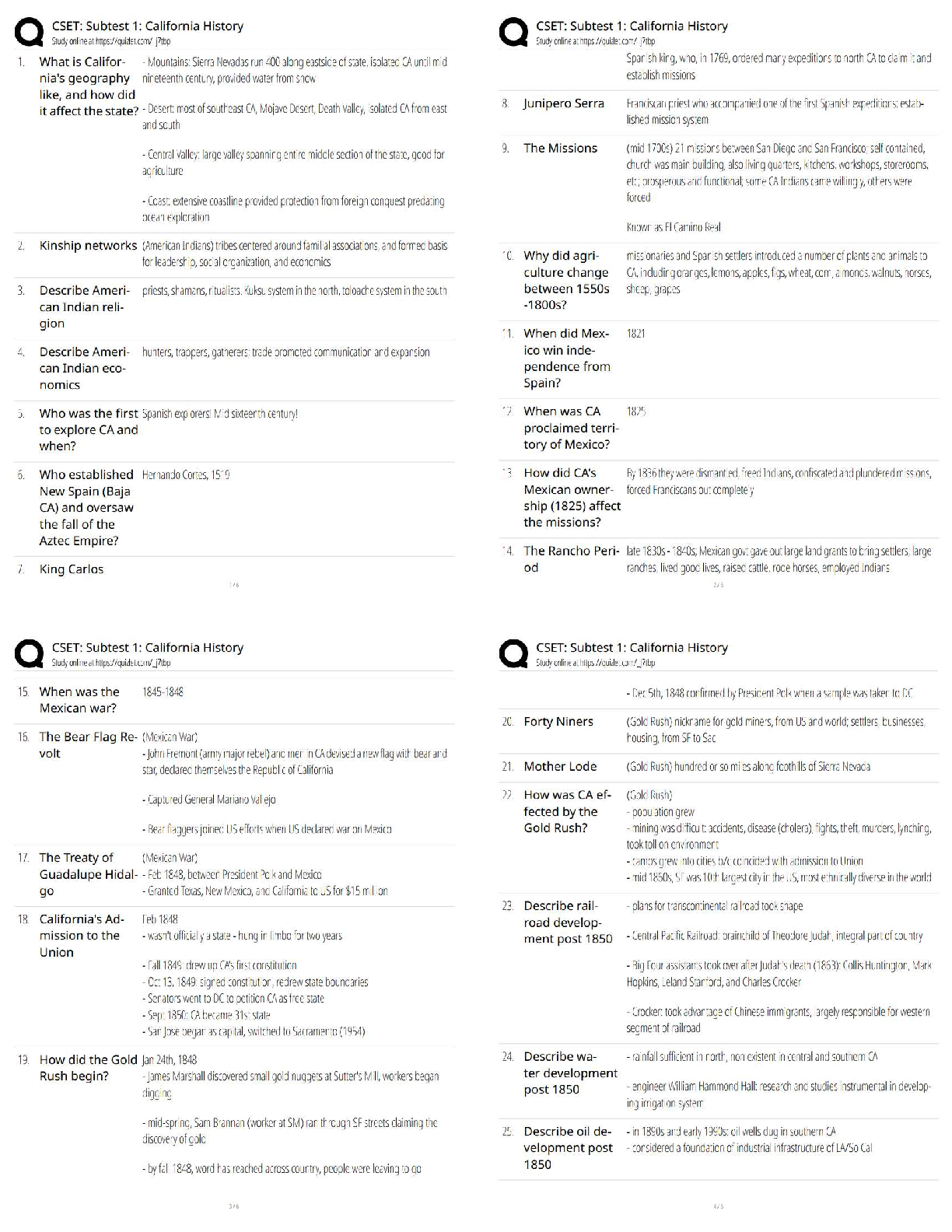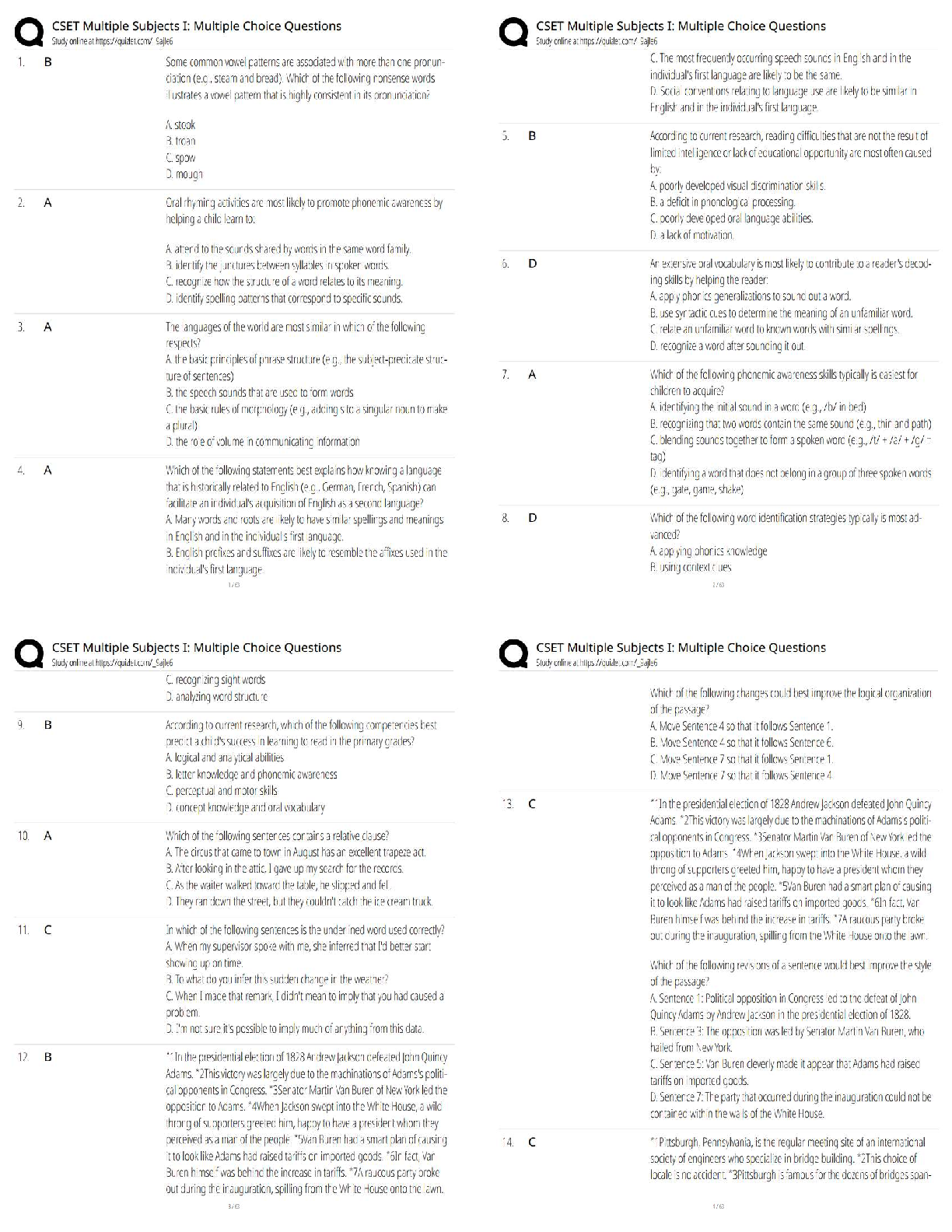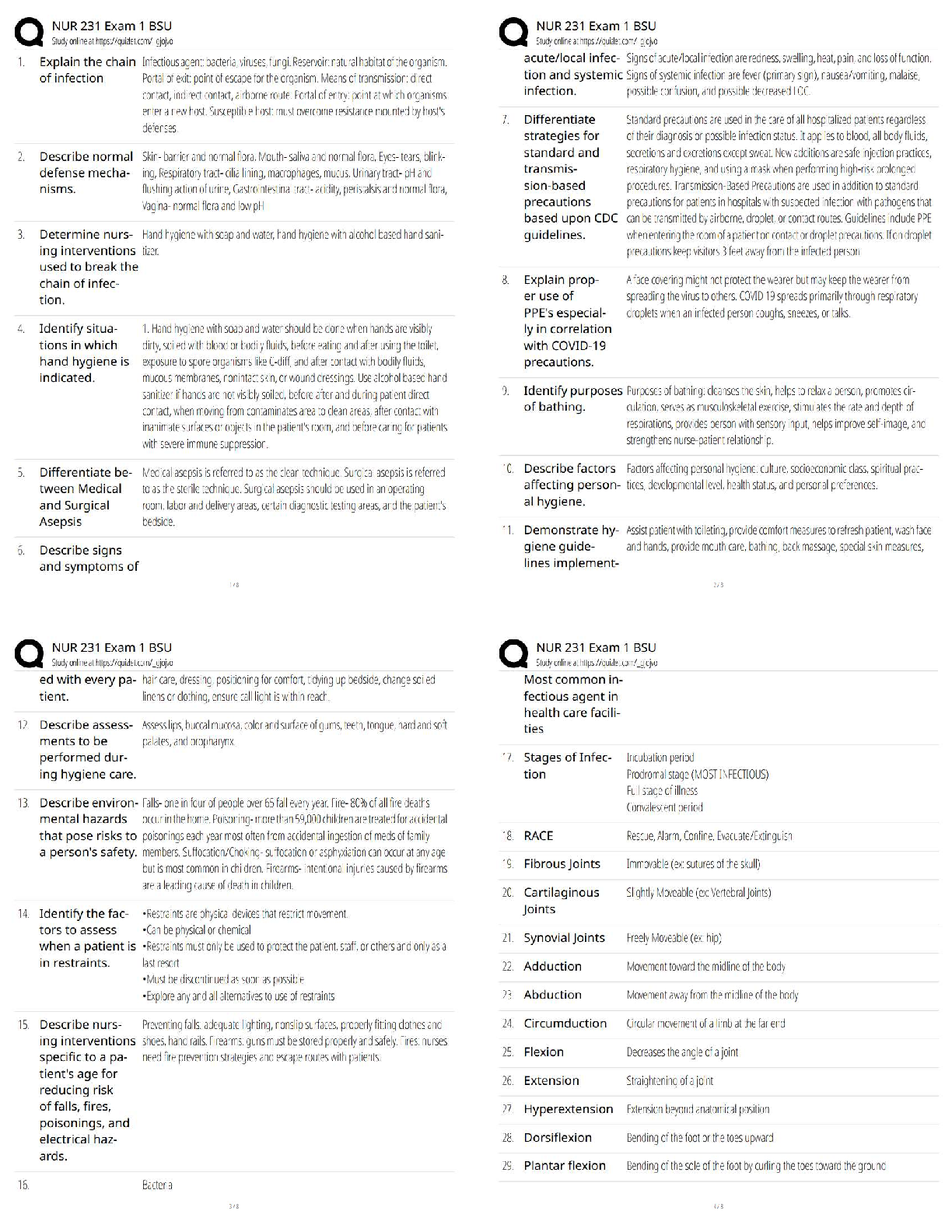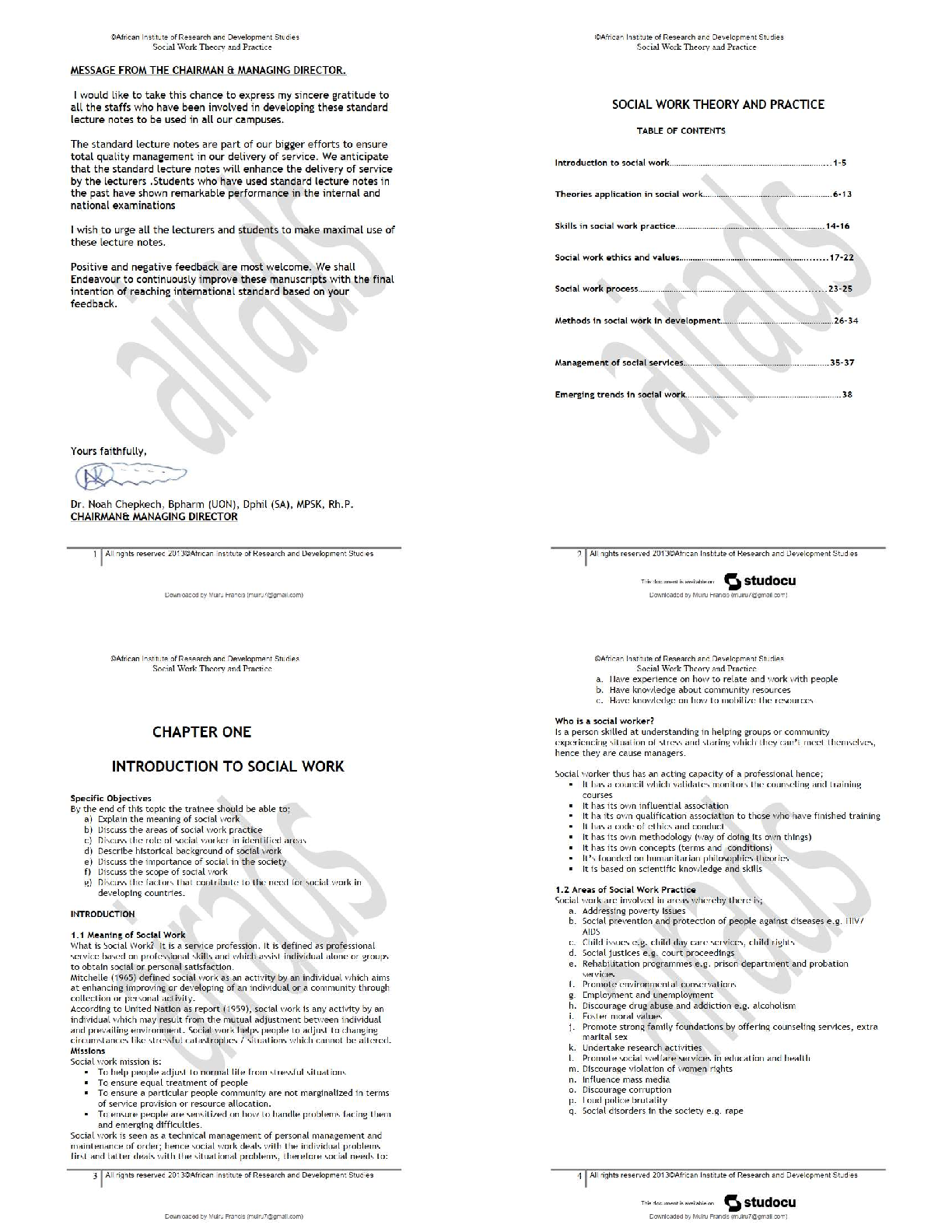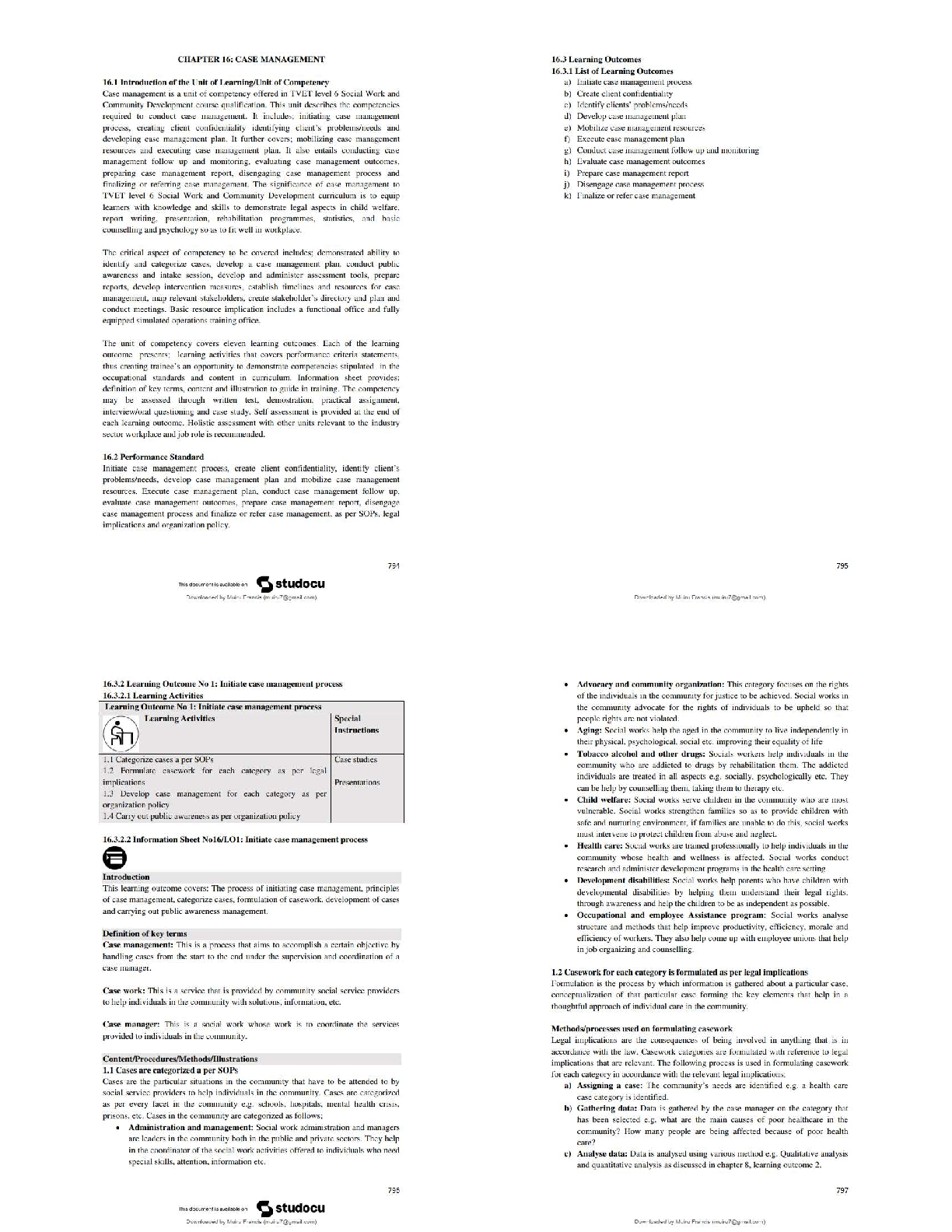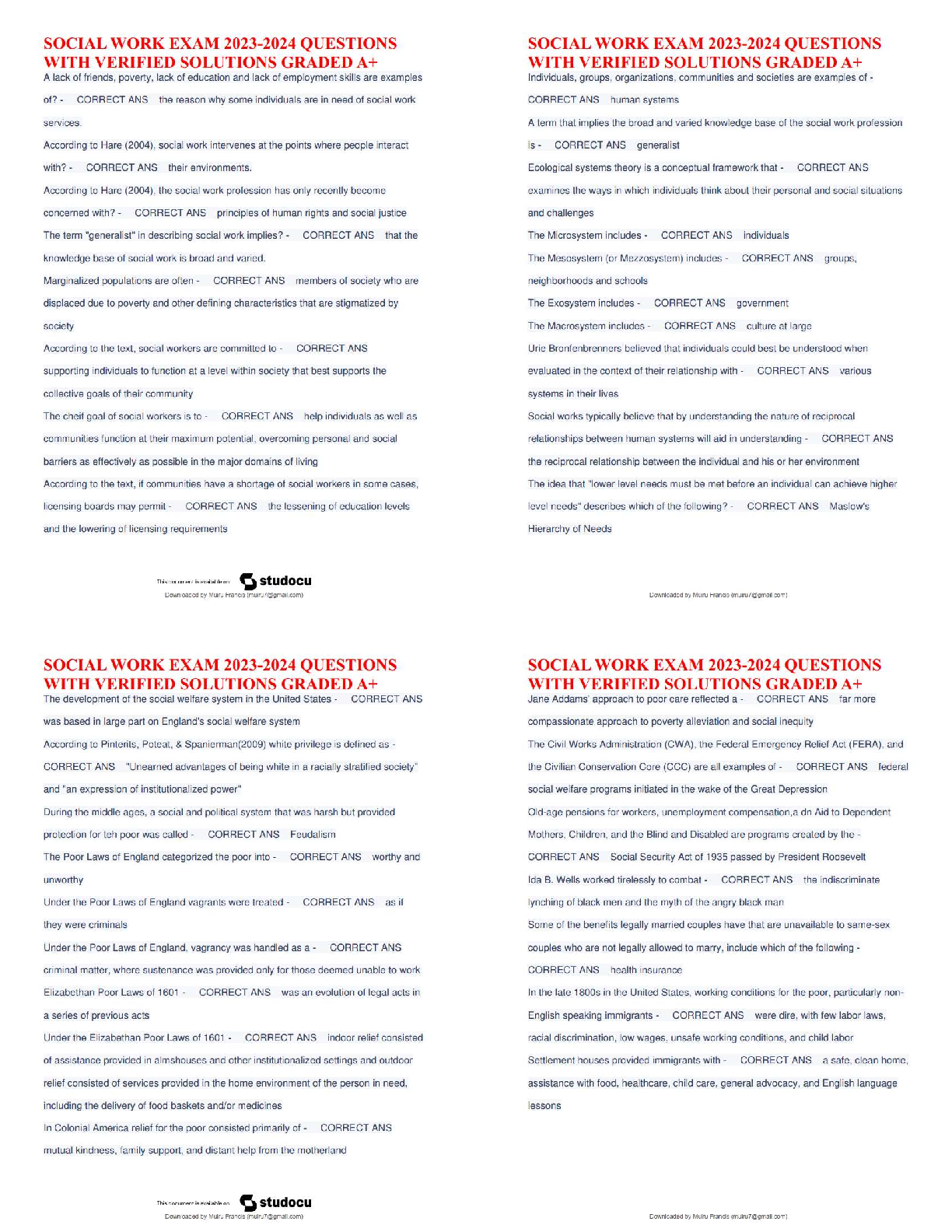Health Care > QUESTIONS & ANSWERS > Student Exploration: Fast Plants® 1 – Growth and Genetics (All)
Student Exploration: Fast Plants® 1 – Growth and Genetics
Document Content and Description Below
Note to teachers and students: The Fast Plants® Gizmo was created in collaboration with the Wisconsin Fast Plants Program of the University of Wisconsin-Madison. These lessons can be used independent ... ly or in conjunction with classroom Fast Plants experiments. Vocabulary: allele, dominant allele, Fast Plants, gene, genetics, genotype, heterozygous, homozygous, offspring, phenotype, pollen, pollinate, Punnett square, recessive allele, trait Prior Knowledge Questions (Do these BEFORE using the Gizmo.) 1. What do plants need to survive? Water , Sunlight , Nutrients in the soil , space , Carbon Dioxide 2. How do plants reproduce? By pollination Gizmo Warm-up Several common vegetables, including Bok choy, napa cabbage, and turnips, are varieties of a plant called Brassica rapa. Fast plants are a rapid-cycling variety of Brassica rapa that was developed at the University of Wisconsin. These plants have short growing cycles and are ideal for classroom use. In the Fast Plants® 1 – Growth and Genetics Gizmo, you will learn about the life cycle and genetic traits of Fast Plants. In the Gizmo, drag seed packet A to container 1 and seed packet B to container 2. Click Play ( ), and then Pause ( ) after about 10 simulated days. 1. A plants traits are its characteristics. Drag the magnifying glass over container 1. Describe the traits of these plants. All of them have purple stems and green leaves 2. Drag the magnifier over container 2. How do these plants differ from the container 1 plants? Rather than having purple stems and green leaves , they have green stems and lighter green ( yellow?) leaves. Ra Activity A: The Fast Plants® life cycle Get the Gizmo ready: • Click Reset ( ). Plant seeds A in container 1. • Turn on Show hints. Introduction: Fast Plants® are grown in wicking systems, typically made of nested plastic containers. The larger container is the water reservoir. Water from the reservoir travels through the wick into the soil, where roots draw the water into stems and leaves. Question: How do Fast Plants grow and reproduce? 1. Grow: With seeds A in container 1, click Play. Click Pause on day 17. A. Is the container full of water? No If not, drag the water bottle to the container. B. Do the plants look like they are too crowded? Yes If so, use the tweezers to pull out a few plants and discard them in the waste hole. 2. Pollinate: The bee stick should be active at the bottom of the Gizmo. A bee stick is a dead bee glued on a toothpick. Drag the bee stick through the flowers. A. What happens to the appearance of the bee stick as it is dragged through the flowers? It becomes brighter and more yellow , it is showing the pollen on the bee The bee’s hairy thorax (middle section) is covered in pollen. Pollen is produced by male reproductive organs in the flower. Each grain of pollen contains a sperm cell. B. What happens to the flowers? The flowers become fertilized [Show More]
Last updated: 2 years ago
Preview 1 out of 9 pages
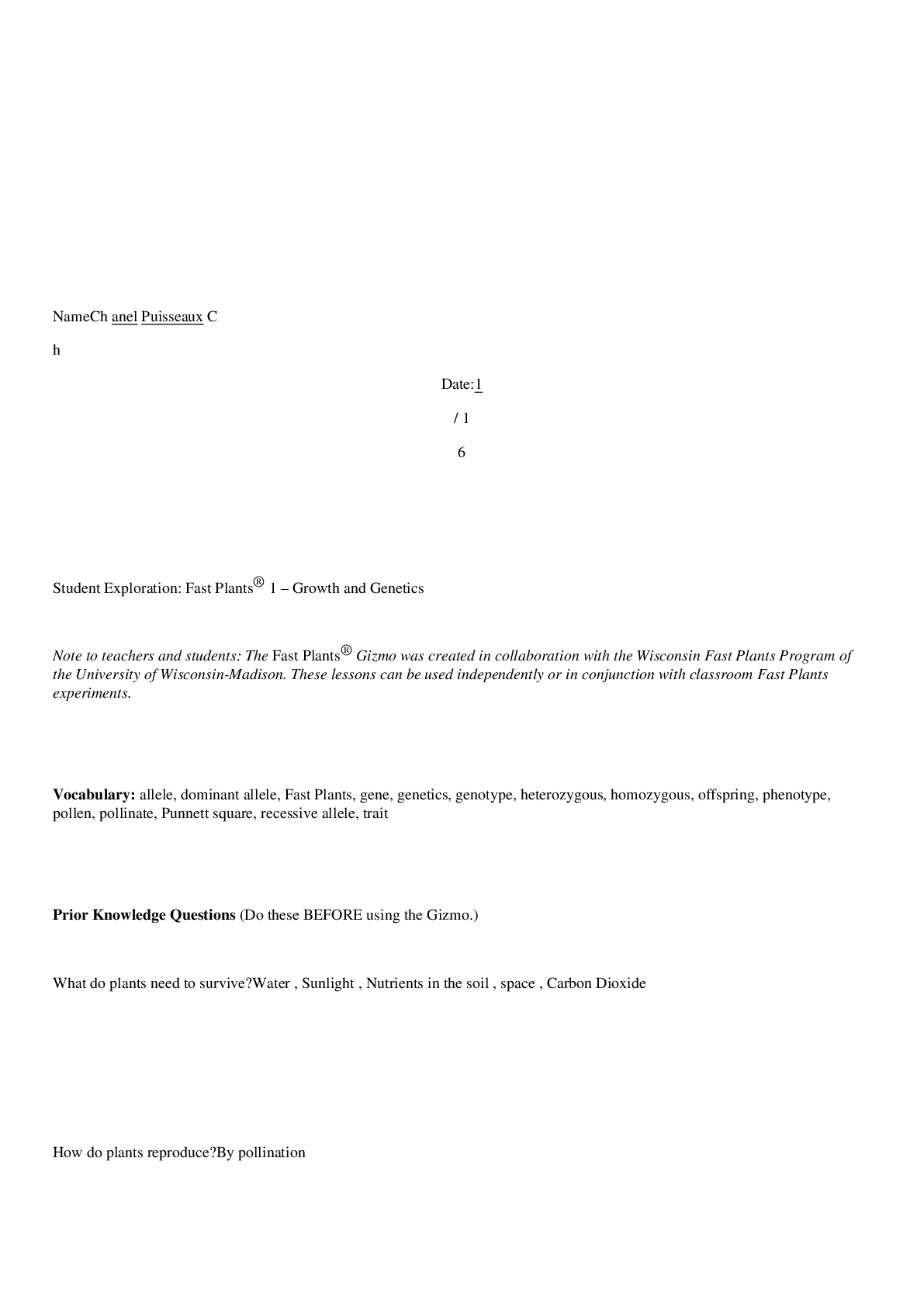
Buy this document to get the full access instantly
Instant Download Access after purchase
Buy NowInstant download
We Accept:

Reviews( 0 )
$15.00
Can't find what you want? Try our AI powered Search
Document information
Connected school, study & course
About the document
Uploaded On
Mar 22, 2023
Number of pages
9
Written in
All
Additional information
This document has been written for:
Uploaded
Mar 22, 2023
Downloads
0
Views
81


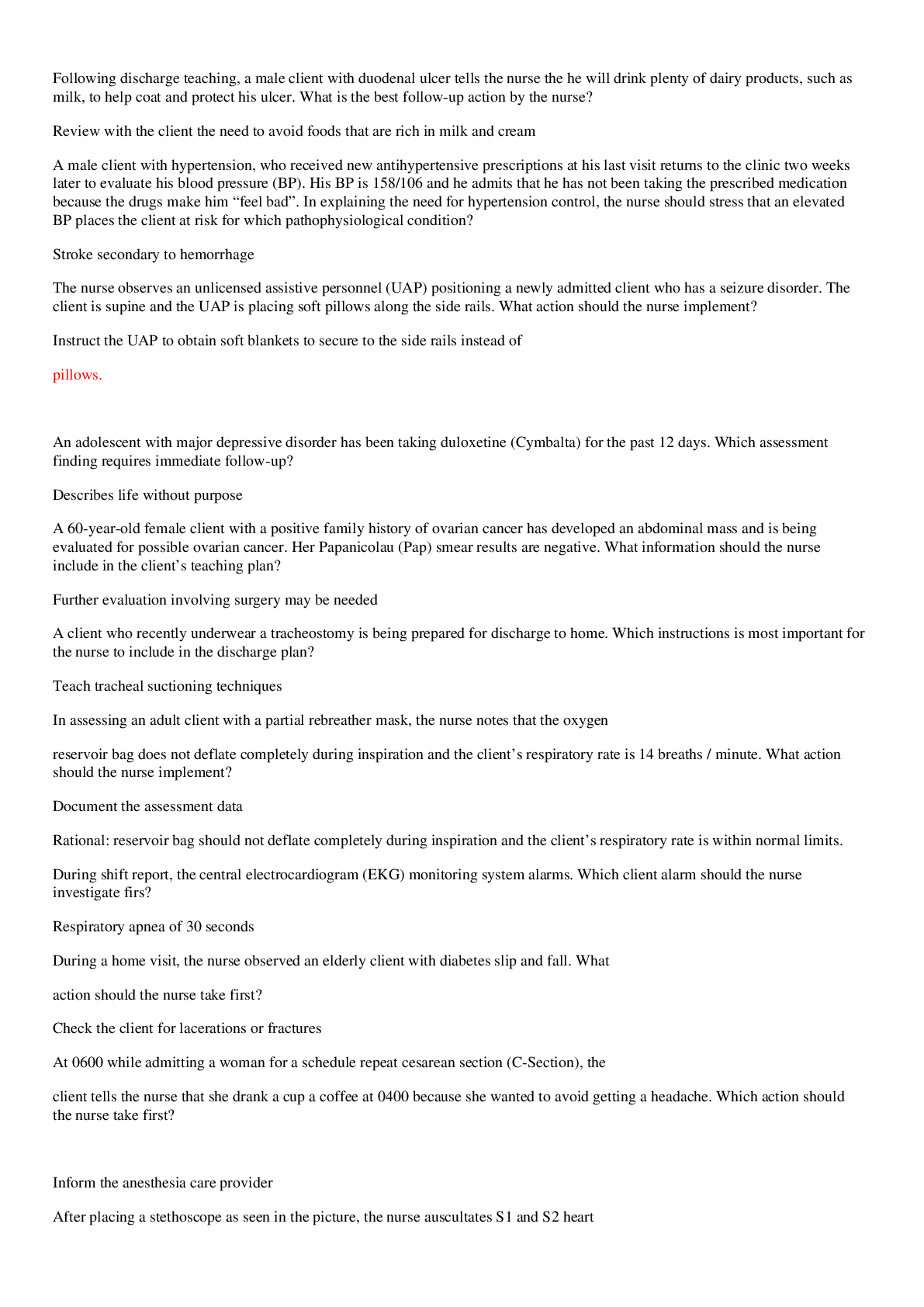

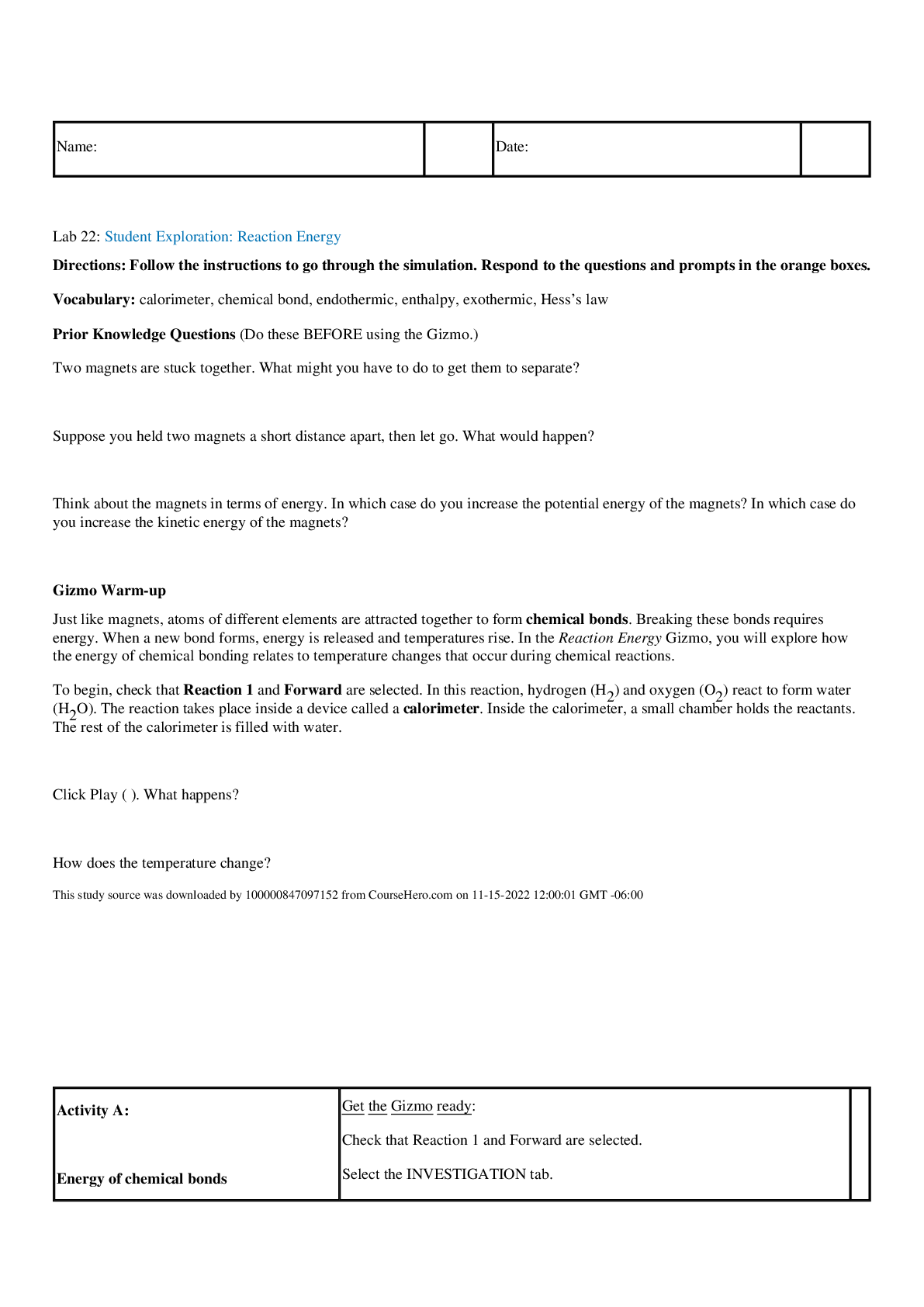
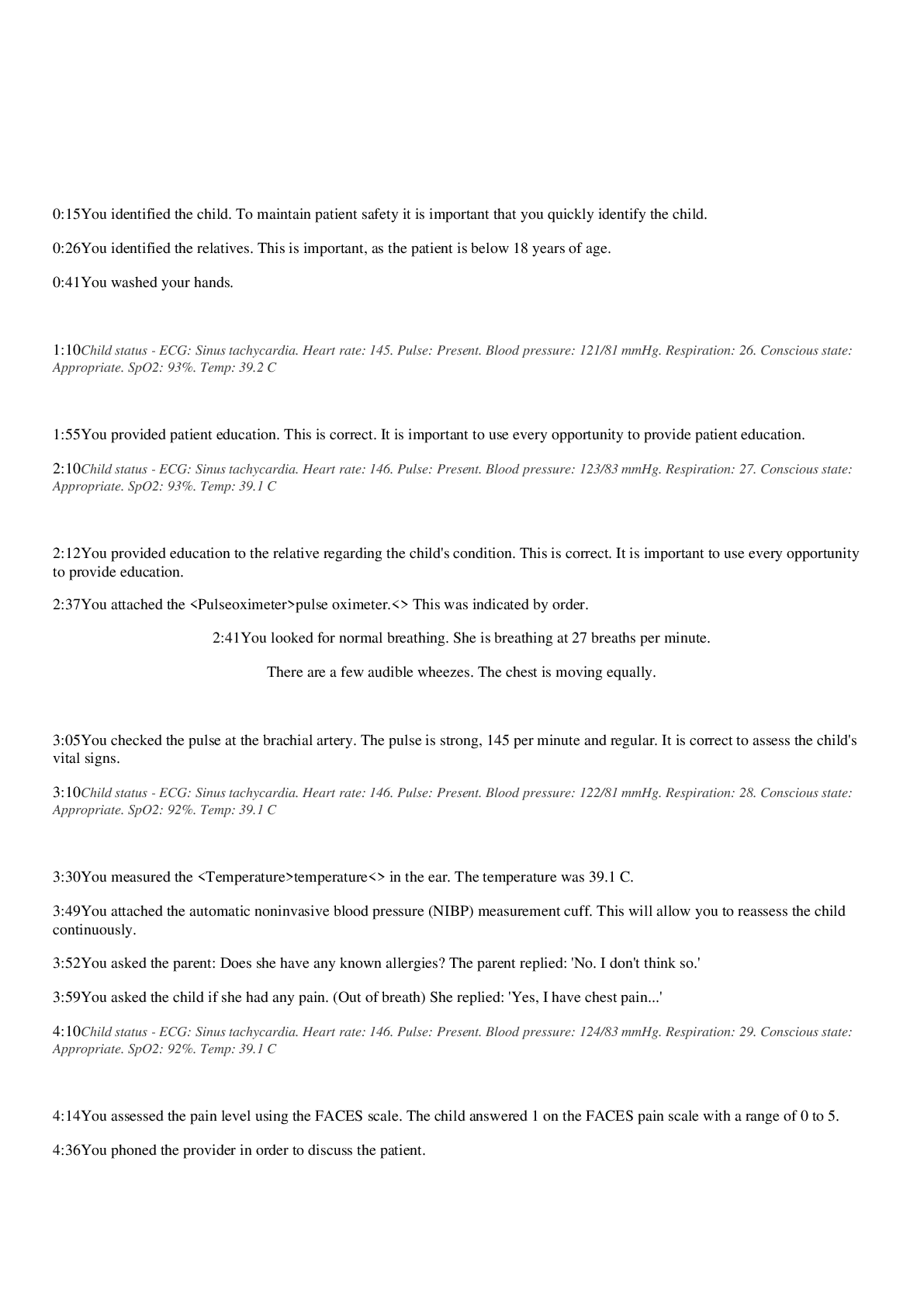
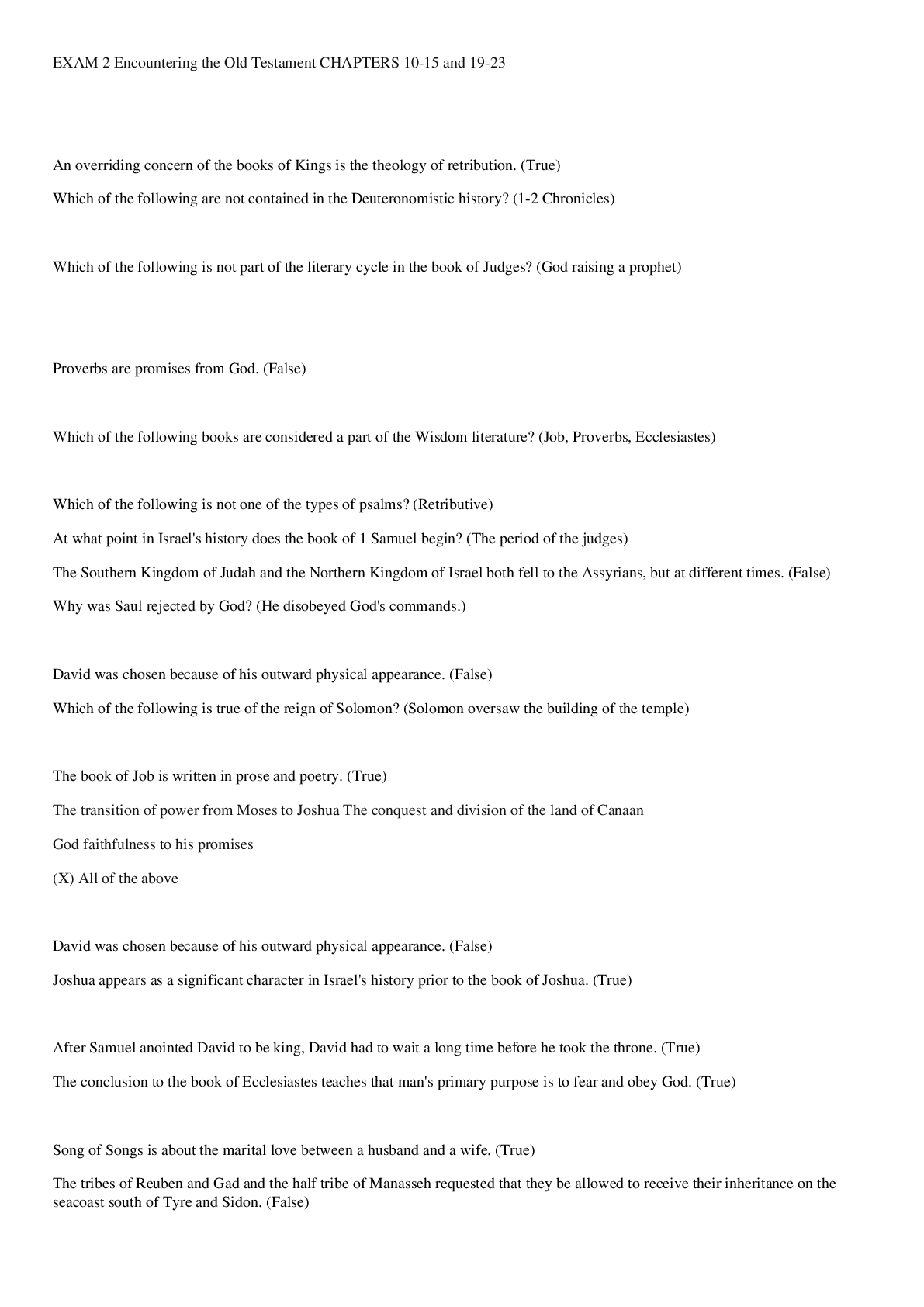
 TEST with Answers.png)

